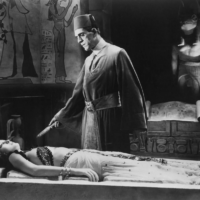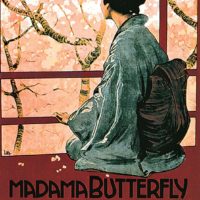The New York Times asked 17 columnists to choose a single work. Maureen Dowd chose Invasion of the Body Snatchers, David French chose Arrival (great film, though I'm not entirely convinced as an answer to this question. But, and truly this is not hometown bias, the winner is a 1979 film that saw coming the divides that curse us in 2023. I reckon Mike is in his early 60s around now. … [Read more...]
Cultural Affairs: Bloomington is the place to be
The Center for Cultural Affairs at Indiana University in Bloomington is only four years old, but has quickly made a name for itself with conferences and a workshop series that brings together scholars and practitioners from around the world. This summer, the CCA hosts two in-person international conferences: The Association for Cultural Economics International will hold its biennial conference in Bloomington in late June. This is the first time I can recall when the conference has taken place in a small city. I first attended this … [Read more...]
Call for Papers – Cultural Policy and Cultural Democracy: A Global Dialogue – Santiago de Chile
The journal Cultural Trends (for which I serve on the Editorial Board) is hosting a wonderful event: The Cultural Trends journal team are hosting their first 'Global Dialogue' conference event in Santiago de Chile. Key themes (could) include: cultural democracy and social justice; power, public management and cultural policies; development of cultural institutions and governance of culture; subsidy for the arts and public financing alternatives; cultural worker, status of the artist and socioeconomic conditions of culture; the role of civil … [Read more...]
Who wants to go to college?
Should more young people go to college? This morning's papers presented very different answers to the question. The New York Times reports on President Biden's idea that we ought to ensure there are good and interesting careers and stable incomes for people who do not want to, or find it very difficult to, obtain a college degree: Mr. Biden’s approach is a shift from previous Democratic administrations, which were far more focused on college as a path to higher pay and advancement. Mr. Obama, during his first joint session of Congress, said … [Read more...]
Indirect price discrimination in theatre seats, books, and mummies
When arts presenters set prices, they know that there are some customers willing to pay top dollar for the highest quality offerings - the best seats in the house - while there are other potential customers who might have an interest in attending the show, but only at a lower price. The challenge in setting prices for different quality seats is that while we know there are different sorts of customers, some willing to pay a lot for high quality and others who are not, when a person comes to the box office window we cannot tell what sort of … [Read more...]
Strategic Planning and Muddling Through in the Arts
I'm at the stage of the semester where we begin our module on strategic planning. One of my favorite articles on the subject is from 1959, Charles Lindblom's "The Science of 'Muddling Through'", which takes abstract theorizing about ends and means down to the practical level of how plans are actually made in our world of organizations with histories, ways of doing things, and only limited information about the universe of possibilities; it could be thought of as something of an application of Michael Oakeshott's caution regarding "rationalism" … [Read more...]
New Rushton Working Paper on Equality and Public Funding for the Arts
A short, low-tech paper available for free download here on SSRN. The abstract: Suppose a reasonably wealthy country did not have an arts council that granted public funds to select artists and arts organizations. Would it be advisable to create one? One reason to do so, which comes from economic analysis, is that there might be market failures in the arts, whether public goods or, more likely, positive externalities, such that public subsidy would generate a more efficient allocation of resources. Another reason, although inconsistent … [Read more...]
Artists’ guaranteed income, and how to do arts policy analysis
The New York Times reports on how the Irish experiment in giving some randomly selected artists a small guaranteed income (while also observing a control group of artists not included in the program) is going: Lydia Mulvey, 47, a screenwriter, said that she quit her job in a telecommunications firm as soon as she heard she’d made it into the program. Now she spends her time writing pilot scripts for thrillers and sci-fi shows, rather than trying to squeeze that into evenings and weekends. “I knew it’d be transformative and give me my life … [Read more...]
Art and Morality
"There is no such thing as a moral or an immoral book. Books are well written, or badly written. That is all." So says Oscar Wilde. Is he right? A new issue of the British Journal of Aesthetics has arrived in my mailbox, and the October 2022 issue is devoted to the question(s) of art and morality, including discussion of four recent books: Mary Beth Willard's Why It's OK to Enjoy the Work of Immoral Artists; Ted Nannicelli's Artistic Creation and Ethical Criticism; Erich Hatala Matthes's Drawing the Line: What to do with the Work of Immoral … [Read more...]
Feed your head: two (free!) research talks this week
The Center for Cultural Affairs at Indiana University has developed a lively workshop series the past few years, and everyone is welcome to attend. They generally occur every two weeks, 12:00 noon Eastern (US) time, and last (strictly!) one hour. This Wednesday, March 22, the Center welcomes Professor Ken Elpus of the University of Maryland School of Music, who will discuss "Antecedents and Consequents of K-12 Music & Arts Education in America”. You can register here, and it will be via Zoom. On Friday, March 24, at Noon (until 1:30) … [Read more...]










